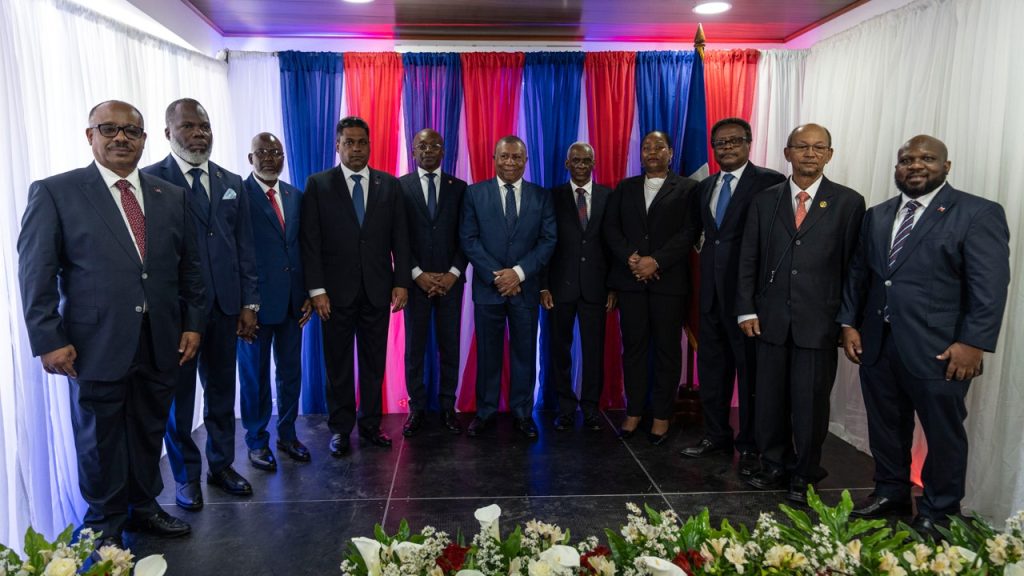A transitional council has been installed in Haiti to bring political stability to the country, which is facing challenges such as gang violence, hunger, and poverty. The council will appoint a new prime minister and Cabinet, as well as create a road map for holding general elections. Its mandate expires in 2026, when a new president will be sworn in. The council is made up of eight men and one woman, with seven members having voting powers.
Smith Agustin, a former ambassador to the Dominican Republic and legal expert, is affiliated with the EDE/RED political party. Dr. Louis Gérald Gilles, a former senator, will represent the signatories of the Dec. 21 agreement within the council and is associated with outgoing prime minister Ariel Henry. Fritz Alphonse Jean, an economist and president of INHOPP, is linked to the civil-society group known as the Montana Accord. Edgard Leblanc Fils is a former president of Haiti’s Senate and represents the January 30 political group. Laurent Saint-Cyr is the president of the American Chamber of Commerce in Haiti, and Emmanuel Vertilaire is a judge specializing in criminology and anti-corruption efforts. Leslie Voltaire is a veteran politician with ties to the Fanmi Lavalas party.
The council also includes observers such as agronomist Régine Abraham, who became Cabinet director at the Ministry of the Environment after her predecessor resigned due to alleged involvement in the squandering of funds. Frinel Joseph, an evangelical pastor, became prominent as treasurer of Haiti’s electoral council but resigned along with seven others due to local pressure. The council members and observers bring a range of expertise and experience to the transitional council, which will work towards establishing political stability and preparing for general elections.
The installation of the transitional council comes at a crucial time for Haiti, as the country is facing ongoing gang violence, hunger, and poverty. The council will play a key role in appointing a new prime minister and Cabinet, as well as creating a road map for holding general elections. The council members, with their diverse backgrounds and affiliations, will work together to address the challenges facing Haiti and guide the country towards a more stable and prosperous future.
The voting members of the council, including former diplomats, politicians, and experts in various fields, bring a wide range of perspectives to the table. Their affiliations with political parties and civil society groups demonstrate their commitment to representing the interests of different segments of Haitian society. The observers, such as Régine Abraham and Frinel Joseph, bring additional expertise and oversight to the council, ensuring transparency and accountability in the decision-making process.
As the council works towards fulfilling its mandate and preparing for general elections in 2026, it will be important for the members to collaborate effectively and prioritize the interests of the Haitian people. The installation of the transitional council marks a significant step towards political stability in Haiti, and the commitment of its members to addressing the country’s challenges bodes well for its future. With the support of the international community and the Haitian people, the council has the potential to lead Haiti towards a more secure and prosperous future.


